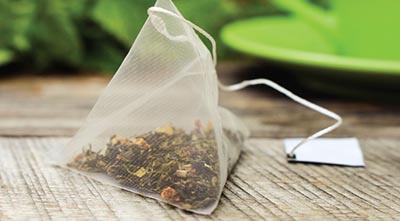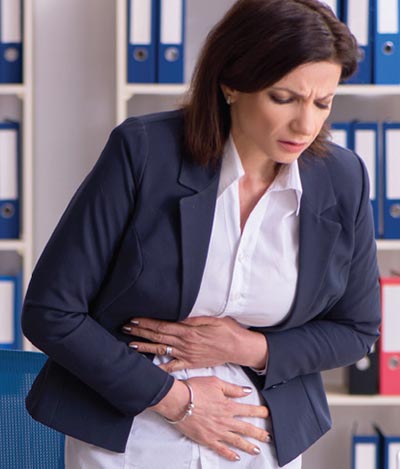Quick Studies: a snapshot of the latest research on diet, exercise, and more

Victoria M - stock.adobe.com.
Protect Your Heart

Confused about conflicting advice on what foods can cut your risk of having a heart attack or stroke? Here’s a snapshot of the diet advice in the 2019 guidelines from the American Heart Association and American College of Cardiology:
■ Eat a diet rich in vegetables, fruits, nuts, beans, whole grains, and fish.
■ Replace saturated fat with monounsaturated and polyunsaturated fats.
■ Minimize refined carbs (white flour, added sugars), sweetened beverages, and processed meats (like bacon, hot dogs, lunch meats, and sausage).
■ Reduce sodium and high-cholesterol foods (like egg yolks).
What to do: See above. And aim for at least 150 minutes a week of moderate-intensity—or 75 minutes of vigorous—exercise. Tobacco? Fuggedaboutit.
J. Am. Coll. Cardiol. 74: 1376, 2019.
Exercise & Menstrual Pain

Exercise may curb menstrual pain, say researchers who examined 10 studies on 754 women.
Women assigned to exercise for 45 to 60 minutes at least three times a week all month (but not while menstruating in some studies) reported less pain than women in non-exercise groups. Intensity varied from low (like yoga) to high (like aerobics).
What to do: Better studies are needed, but there are plenty of other good reasons to exercise.
Cochrane Database Syst. Rev. 2019. doi:10.1002/14651858.CD004142.pub4.
Cup o’ Plastic?

Some snazzy teas come in plastic, rather than paper, tea bags. Skip ‘em.
When Canadian researchers steeped empty plastic tea bags in water heated to almost boiling for five minutes, each cup of the water ended up with an estimated 11.6 billion microplastic and 3.1 billion nanoplastic particles. Yikes.
Most of the particles were nylon and polyethylene terephthalate.
When the scientists concentrated the tea bag water and allowed Daphnia magna—a tiny transparent crustacean used to gauge the harm of toxic chemicals—to swim in it for 48 hours, the crustaceans developed anatomical abnormalities and unusual swimming behavior.
What to do: Why buy plastic when you can use ordinary paper tea bags or a reusable metal infuser for loose-leaf tea? Though no studies on plastic tea bags have been done in humans, the plastic could potentially raise the risk of cancer or other harms, say the authors.
Environ. Sci. Technol. 2019. doi:10.1021/acs.est.9b02540.
Peppermint Oil & Irritable Bowel Syndrome

A handful of small studies have suggested that enteric-coated peppermint oil may lessen abdominal pain in people with irritable bowel syndrome (IBS). Now the results of a larger trial are in.
Dutch scientists—some with ties to a peppermint oil company—randomly assigned 189 people with IBS to take 182 milligrams a day of enteric-coated peppermint oil or a placebo. (Peppermint oil that isn’t enteric-coated can cause acid reflux.)
After eight weeks, pre-set targets for declines in abdominal pain and overall symptoms were no different. There was a hint that the peppermint oil might curb pain slightly, but a new study would have to confirm that finding.
What to do: Don’t expect peppermint oil to have a substantial impact on the symptoms of IBS.
Gastroenterol. 2019. doi:10.1053/j.gastro.2019.08.026.
Photos: stock.adobe.com: Pixel-Shot, WavebreakmediaMicro, Victoria M, Elnur.

